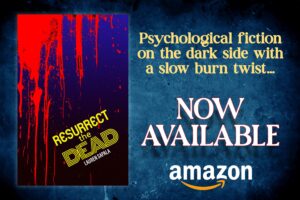My new novel, Resurrect the Dead, just released today! As with most of my fiction, this one is dark. And psychological. And dancing right on the edge of transgressive. Here’s...
LAUREN'S BOOKS
Lauren’s books focus on the unique writing process of introverted intuitive personalities, as well as how to live a more creative, empowered life as a sensitive intuitive.





